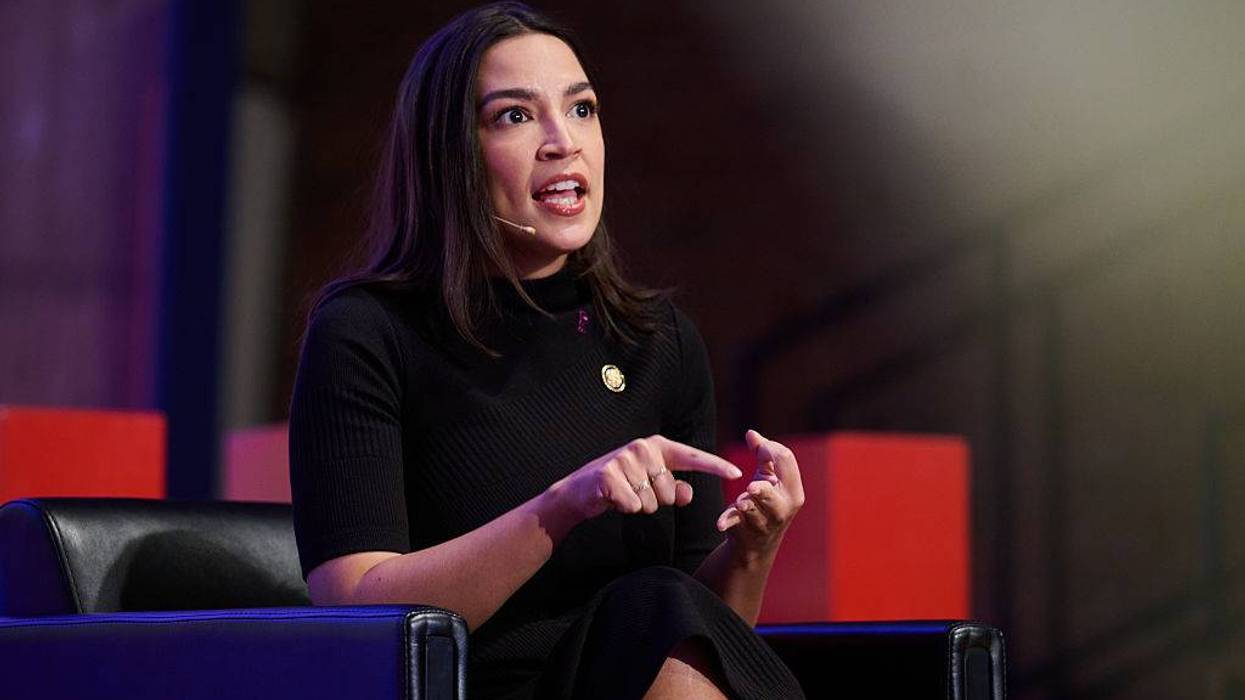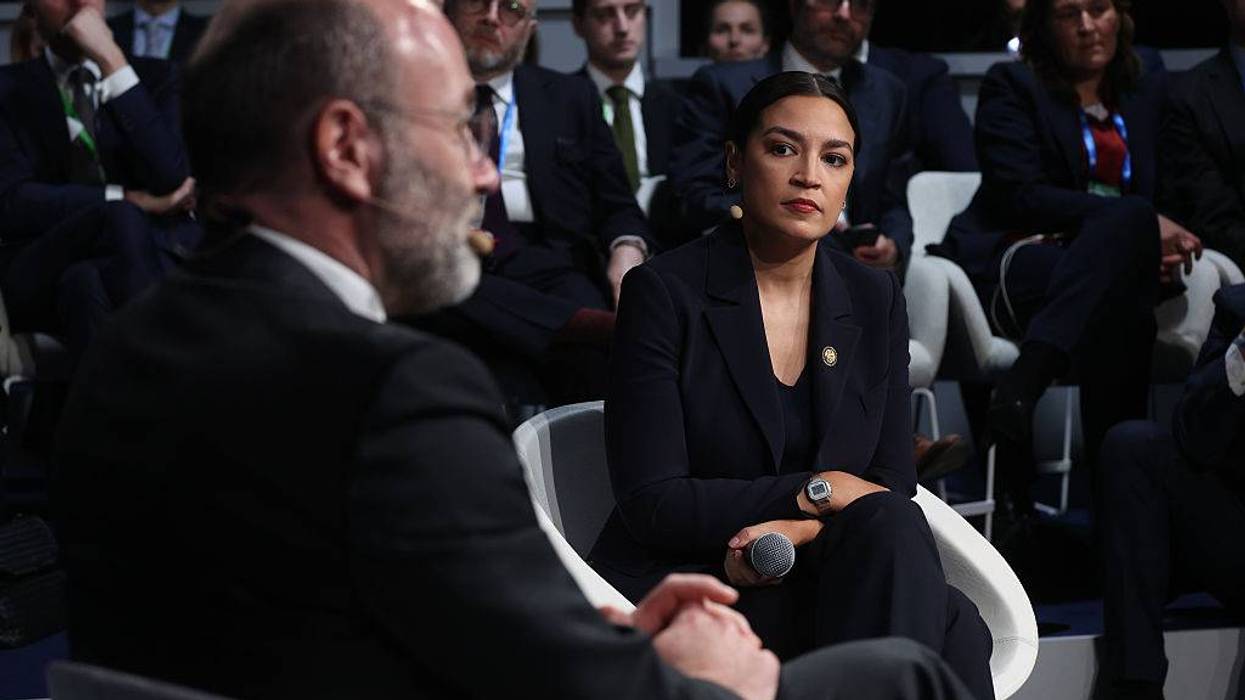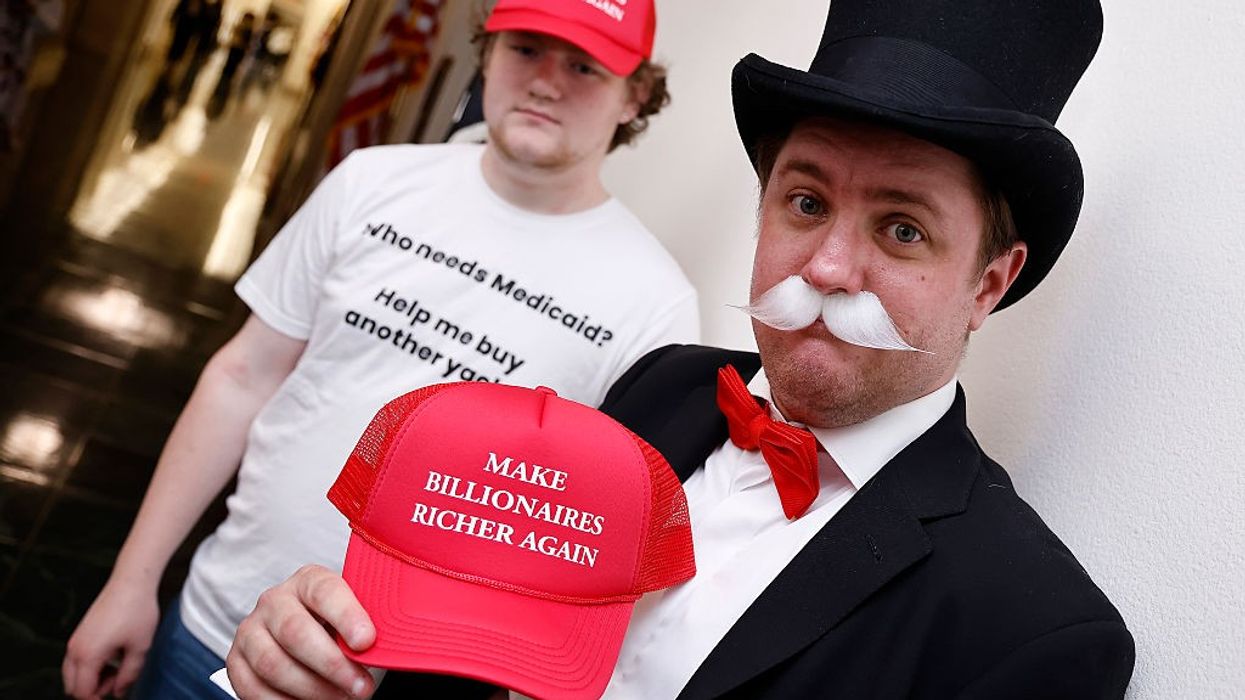'We Are Coming for Power for Working People': Ocasio-Cortez Talks US Politics in Germany
"You are being screwed, and that story is not a cultural one but a class one."
Rep. Alexandria Ocasio-Cortez on Sunday fleshed out her vision for progressive politics in the US during a town hall-style event at
Technical University Berlin in Germany.
While discussing the domestic political situation in the US, Ocasio-Cortez (D-NY) argued that enormous disparities in wealth inequality were leaving voters open to appeals from far-right movements that scapegoat immigrants and minorities for problems being caused by unchecked corporate power.
"When you have economic stagnation for the working class, especially in an environment where GDP is growing, that is the stuff of populist movements," said Ocasio-Cortez. "The choice is what direction those populist movements can go... One direction is, 'We are going to blame this on the vulnerable, on immigrants, on people of different gender identities."
The Rosetta Stone for AOC’s foreign policy right here: “...economic elites are taking the lion's share of growth for themselves and leaving crumbs for the working class...this is an injustice, you are being screwed, and that story is not a cultural one but a class one” pic.twitter.com/gK7kyVbONb
— Van Jackson (@RealVanJackson) February 15, 2026
The New York Democrat then argued that right-wing populism "is all done as a distraction from the truth, which is that economic elites have taken the lion's share of growth for themselves" while "leaving crumbs for the working class."
"The alternative is a populist movement that tells the truth," she continued. "That says, 'This is an injustice, you are being screwed over, and that story is not a cultural one, but a class one.'"
Elsewhere in the talk, Ocasio-Cortez downplayed speculation about potentially running for higher office in 2028, instead outlining her goals for reshaping the political environment.
"My ambition has always been about conditions," she said. "I remain ambitious, but my ambitions are in changing our political environment. That's why, when I was first elected, my ambition was to change the Democratic Party, and to make it more economically populist and responsive to working-class Americans... Frankly, I think the ambitions of a progressive movement go so far beyond an elected office. We are coming for power for working people."
Ocasio-Cortez also gave a shoutout to the resistance to federal immigration enforcement operations as an example of building community solidarity in the face of an external threat.
"Every one of us can be sand in the gears of an injustice," she said. "I think about how all the people in Minneapolis refused to let [US Immigration and Customs Enforcement] officers use the bathroom in their establishments. I mean, it’s a small thing, but it matters! It matters... We create a culture of protection of one another, a culture of solidarity with one another, and it's rebellious."
AOC: “There are more of us than them. Every one of us can be sand in the gears of injustice. All the people in Minneapolis refused to let ICE officers use the bathroom in their establishments. It’s a small thing, but it matters! We create a culture of protection of one another” pic.twitter.com/3y9IpRiS8m
— Marco Foster (@MarcoFoster_) February 15, 2026
Ocasio-Cortez's remarks on Sunday came after she participated in a panel discussion at the Munich Security Conference on Friday where she argued that "a working-class-centered politics" was the key to defeat "the scourges of authoritarianism, which provide political siren calls to allure people into finding scapegoats to blame for rising economic inequality, both domestically and globally."


